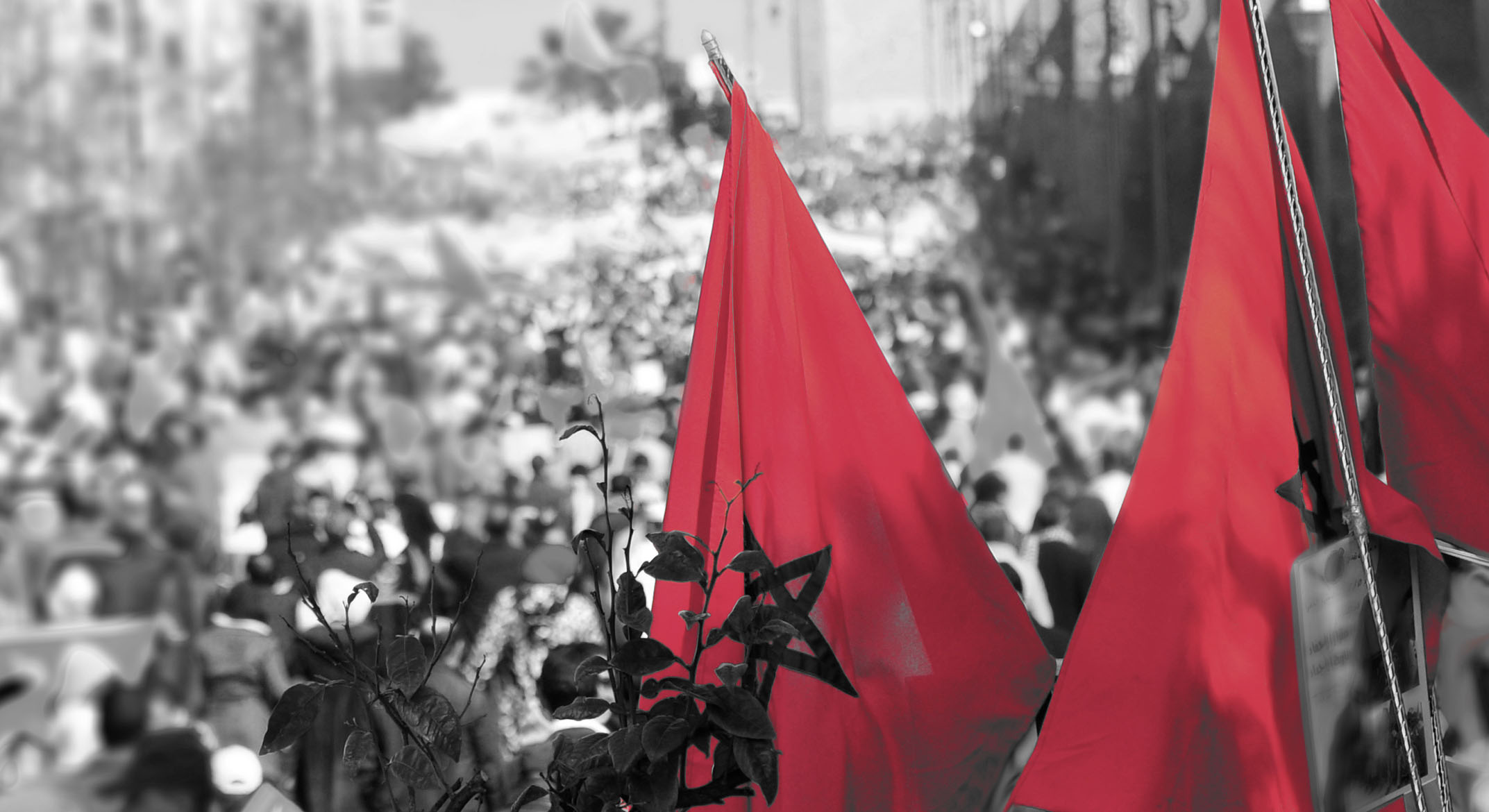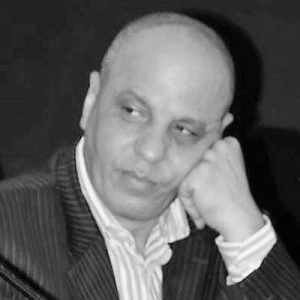

Morocco in the Midst of the Storm in the Arab World - Jamal Ben Dahman
The question of Moroccan exceptionalism remained a staple in official media. It portrayed the country as immune to tensions seen in many Arab countries since the beginning of the current century. However, the spread of the Arab Spring led to the emergence of a movement calling itself the February 20 Movement. It placed itself outside the circle of political parties, unions, and civic movements. It called for modernizing the form of government by making it more democratic and separating political responsibility from economic activity. It criticized the limited roles of social mediation institutions, such as political parties, unions, and civic bodies. It also called for broader individual freedoms and accountability for those responsible for the abuse of power in the country.
Protest Movements Instead of Revolutionary Change
During the Arab Spring, Morocco did not witness the type of revolutions that took place in countries like Egypt, Tunisia, and Libya. However, it saw a strong protest movement leading to the implementation of constitutional reforms. At the time, in 2011, they were considered a major victory in response to several of the demands, such as expanding the Prime Minister's authority, recognizing the pluralism of Moroccan identity, recognizing the rights of the opposition, constitutionalizing the Amazigh language, announcing the recommendations of the Equity and Reconciliation Commission, adopting positive discrimination in gender issues, the separation of powers, and appointing the prime minister from the party that won first place. Along with other gains, they eventually led to holding early elections won by the
Morocco was not one of the Arab countries that experienced the Arab Spring revolutions, such as Egypt, Tunisia and Libya. Rather, it witnessed a strong protest movement that led to the completion of constitutional reforms that were considered at the time (2011) as a major gain that responded to many demands such as expanding the authority of the prime minister, recognition of the multiplicity of components of Moroccan identity, and approval The rights of the opposition, the constitution of the Amazigh language, the recommendations of the Equity and Reconciliation Commission, the adoption of positive discrimination in gender issues, the separation of powers, the obligation to appoint the prime minister from the party that won first place and other gains that eventually led to the holding of premature elections won by the Islamic-leaning Justice and Development Party.
Thus, the Moroccan exception argument persisted. It seemed that societies choosing protest benefited more from democratic reform than those opting for revolutions. However, this positive evaluation was soon encountered by major practical constraints.
Applying Reforms: Weak Wills and Practical Constraints
The demands of protestors, motivated by economic, social, and political factors, ended in a historical setback. The strengths of the Arab Spring protests' demands were at the same time its weaknesses. The entire movement came from outside established political party, union, and civic leaderships. And in the absence of leaders, theories that approach issues systematically by invoking reality and its constraints and anticipating consequences by negotiating them were necessarily absent. Thus, the protests built themselves through daily or partial transformations, in the absence of long-term strategy. They raise many social, economic, political, and cultural demands in a vague and unframed manner. They did not transform the demands into contractual principles or societal projects with temporal and procedural limitations. Thus, they allowed outside forces to take advantage of the movement, namely the Justice and Development Party. It led the government for two terms and defended brutal liberal policies that intensified social tensions, abandoning its major slogans. Its president signed the normalization agreement with "Israel," which has eroded his political and moral legitimacy.
Citizens lost confidence in institutions and their slogans. The same questions about the weakness of party institutions of all kinds returned. Accountability for such promises became a demand, in addition to real separation of powers, reparation for individual and collective damages by applying the recommendations of the Equity and Reconciliation Commission, and the need to achieve spacial justice that does not discriminate between regions. A major example of the latter were the events in the Rif (starting in 2015). They were seen as the second wave of the protests and raised similar slogans, but tailored to the region's needs. Several court cases related to Rif Hirak are still ongoing.
Many Challenges and Multiple Storms
A decade on, several challenges have been posed regarding the situation in Morocco, mainly:
First are the challenges of territorial governance, which necessitate prioritizing spatial justice attentive to the geography of suburbs and marginalized areas. Rebuilding citizens' confidence in the administration and in social mediation institutions such as parties, unions, and associations is also a priority. It entails that these institutions rebuild themselves on the basis of clear directions, honest and effective internal democracy, independence, and the courage to adopt positions consistent with their choices.
Second are the challenges related to human rights in light of the signs of receding civil action, which suffers from great exhaustion due to the intensity of battles it fought and lack of tangible results. Parts of the media are also facing tension and prosecutions leading to harsh sentences, such as the case with Tawfik Bouachrine, Sleiman Raissouni, and Omar Radi. Their trials were described by international human rights organizations as the settling of accounts. However, the state insists they are cases of morality brought forward by others as permitted by law.
Third are the challenges of practical activation of the good governance institutions, as stipulated in the 2011 constitution. Responsibility and accountability should be at the forefront. Participatory democracy, inscribed in the constitution, is not a slogan. It is a concrete choice that would contribute to rebuilding trust between citizens and public authorities in the country.
Fourth is the economy and the crisis in unemployment in light of the current demographic transitions in Morocco. The current direction is heading towards contracting instead of public employment. It will have serious repercussions on retirement matters, workers' rights, and job security, whose absence has led to annual protests by a movement calling itself Teachers Forced to Contract.
Fifth are administrative challenges to the success of the expanded regionalization project and their administrative and economic consequences. Regionalization must be implemented as a lever for development that contributes to reducing the size of social protests in areas that have become more aware of their collective right to development and more aware that collective protest serves the interests of the individual and the group.
The sixth set of challenges relate to identity and cultural rights as the generation of future demands and the possibility of overlap between economic and identity demands. Instead of working to calm down demands, effort should be made to formulate reasonable solutions to reasonable issues.
Seventh are the environmental and living challenges related to how to manage the periodic droughts the country has been witnessing, especially in terms of water management, which has become a cause of social unrest even in water-rich areas.
Despite the vigor of the movement, it remains limited at heart, as long as the same problems persist and return with different names from time to time. Their solution requires an active will and not merely words on paper. In many cases, reality supersedes the text.
Jamal Ben Dahman
Keywords: protest movements, February20, Rif, 2011 Constitution, governance, Equity and Reconciliation Commission, normalization, Justice and Development Party, participatory democracy.
Recent publications

